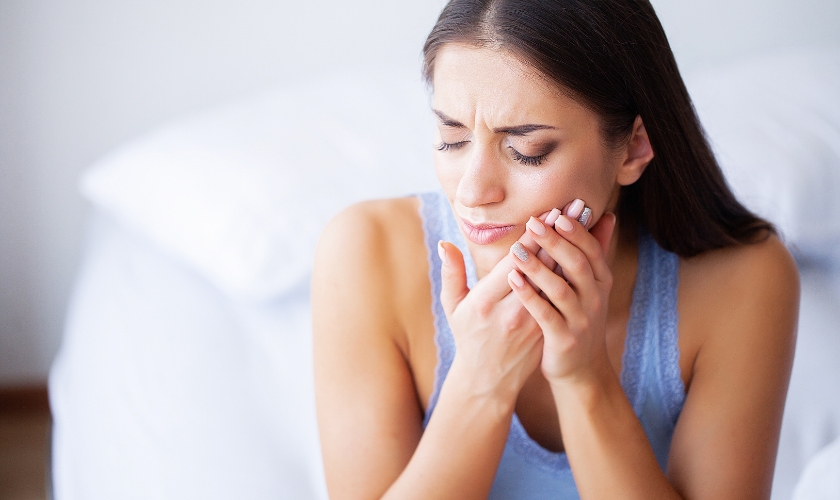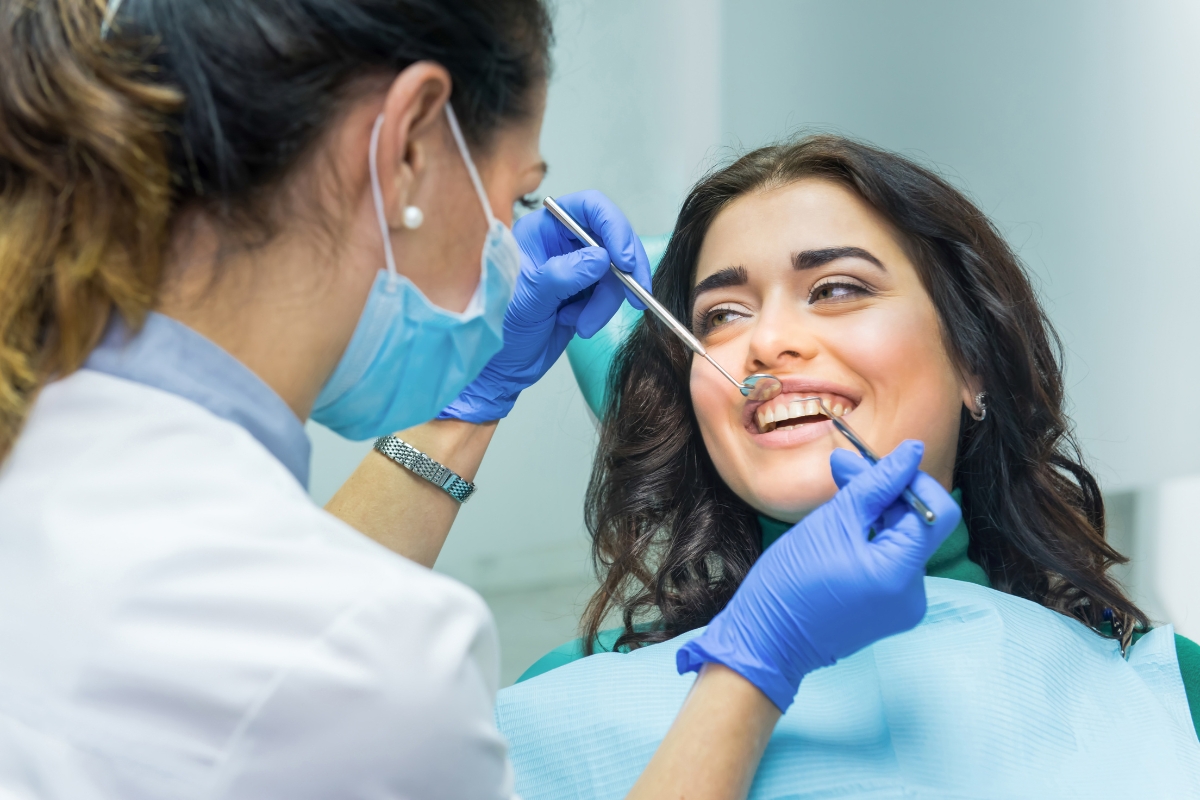
Crack. Snap. Ouch. That’s how most dental emergencies begin, fast, painful, and unexpected. Biting popcorn or opening a packet can suddenly turn into a full-blown dental emergency. Dental emergencies don’t just happen—they’re often caused by everyday bad habits we don’t even notice.
Emergency dentistry sees countless patients every year suffering from preventable damage. Some habits might seem harmless until an emergency dentist becomes your weekend savior.
That dental emergency you dread? Chances are, it could’ve been avoided. Small changes can prevent big trouble, and expensive emergency dentistry visits. Knowing what causes dental emergencies can help you stay ahead of the pain. Chances are, you’re doing one of these five dangerous habits right now.
Let’s break them down and help you steer clear of the next dental emergency.
5 Habits That Cause Dental Emergencies
Habit #1: Using Teeth as Tools
Grabbing keys feels far when scissors are missing, so the teeth come to the rescue. Common uses include tearing open packets, snapping off clothing tags, and even opening bottles. These actions can easily cause chipped, cracked, or even broken teeth, classic dental emergencies.
Avoid this by keeping simple tools handy and reminding yourself: teeth aren’t tools. Choose safety scissors or pocket tools to save yourself from a trip to the emergency dentist.
Habit #2: Neglecting Regular Dental Checkups
Skipping dental appointments may not seem urgent, until it turns into a painful dental emergency. What begins as a minor cavity or early gum inflammation can evolve into an infection or abscess. Professional dental cleanings and checkups detect issues before they escalate into serious emergencies.
Visit your dentist every six months for early diagnosis and prevention. Emergency dentistry in Clarksburg is often the result of ignored warnings and overdue visits.
Habit #3: Chewing Hard Objects
Mindlessly chewing ice, pen caps, or popcorn kernels feels satisfying but is dangerous. These objects apply unnatural pressure to your teeth, increasing the risk of cracks and fractures. Chipped teeth, damaged fillings, or loose crowns can land you in emergency dentistry.
Swap hard chewing habits for sugar-free gum or silicone chew tools. Avoiding this habit can save you pain, time, and an emergency dentist visit.
Habit #4: Grinding and Clenching (Bruxism)
Stress, anxiety, or poor sleep often cause subconscious grinding or jaw clenching. Signs include jaw soreness, tooth sensitivity, worn-down enamel, or headaches. Chronic bruxism can lead to fractured teeth or TMJ disorders—both dental emergencies.
Use a custom night guard and explore stress-reduction techniques like yoga or therapy. Left unchecked, bruxism might have you dialing your emergency dentist at midnight.
Habit #5: Poor Oral Hygiene
Neglecting brushing or flossing creates the perfect storm for decay, gum disease, and infection. Dental infections are among the top causes of painful dental emergencies. Brush twice daily with fluoride toothpaste and floss to remove food and bacteria.
Use an antibacterial mouthwash and limit sugary snacks to maintain balance. A strong oral hygiene routine is the first defense against emergency dentistry.
How to Handle a Dental Emergency at Home?
Pain strikes. Blood drips. Panic sets in. For toothaches, rinse with warm salt water and apply a cold compress to reduce swelling. If a tooth breaks, save the pieces and rinse your mouth gently. Bleeding? Apply clean gauze and press firmly for 10 minutes.
Do not use aspirin directly on gums, it can cause burns and worsen the issue. Avoid delaying care—temporary relief is not a substitute for an emergency dentist.
When to Seek Immediate Dental Help?
Swelling, bleeding that won’t stop, knocked-out teeth, or severe pain require urgent care. If you’re running a fever with dental pain, it may signal a serious infection. Visit an emergency dentist in Clarksburg immediately if your jaw is injured or your bite feels off.
Minor chips or dull aches can usually wait for your next appointment. Know the difference and trust your instincts, early care prevents major dental emergencies.
From ice-chewing to missed checkups, bad habits lead straight to dental emergencies. Cracks, infections, and pain are often preventable with better routines and awareness. Avoiding these five habits can keep your smile, and wallet, safe.
Emergency dentistry helps, but prevention is your best ally. Book your next dental visit now to keep emergencies at bay!
